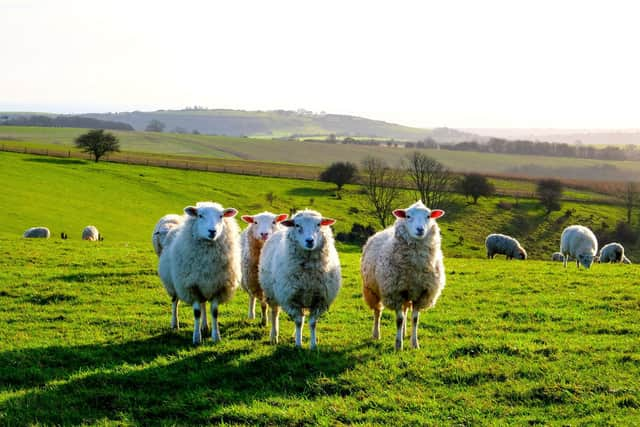Never underestimate the insurance value of your livestock!
and live on Freeview channel 276
The key principle to bear in mind is that the sum insured should not be based on the total value at the renewal date but rather the maximum value of livestock on the farm at any time in the next 12 months.
It's a matter of foresight and looking ahead.
For example, if you insure cattle at the beginning of a grazing season for their purchased price, they will be continuing to rise in value up to the point of sale off the premises.


Advertisement
Advertisement
And so, the insurance sum needs to be based on the higher value in case a loss occurs at that later stage.
Moreover, accidents and injuries are more likely during the movement of livestock, for example, transporting animals for slaughter when they are at their most valuable.
This principle extends to breeding animals as well.
For sheep and suckler cow farms, the livestock value needs to be based on the maximum numbers on the farm such as before the new crop of fat lambs are sold or before suckler calf sales, when the value needs to consider not just the breeding livestock but the offspring as well.
If a claim is made under the livestock section of a farm combined policy and the herd or flock is underinsured, then the principle of ‘Average’ applies.
Advertisement
Advertisement
The Average condition states that the insurer can reduce a claim proportionately to the amount of under insurance, i.e. if the livestock is insured for only 50 per cent of its value at the time of the loss, then only 50 per cent of the amount claimed will be paid.
Most farm insurers apply a special average condition to livestock which means underinsurance is not penalised unless the sum insured represents less than 75 per cent of the total value of livestock.
So, with 2024 now upon us, it's a good time for farmers to take stock of their affairs and plan for the year ahead.
Insurance coverage will remain a vital requirement for all farming businesses in Northern Ireland.
Advertisement
Advertisement
Over the past 12 months, insurance premiums have witnessed a universal increase.
Perhaps, it’s worth reflecting on the basic principles that drive the provision of insurance cover and the factors that contribute to the cost of an insurance premium.
In essence, the premiums of many pay for the losses incurred by a few.
The actual premiums paid by policyholders comprise three elements: The actual net premium charged by the insurance company to run their businesses and pay for claims, an element of commission for agents or brokers used to run their business and finally, the 12 per cent insurance premium tax paid to Government.
Advertisement
Advertisement
It will not come as a surprise to learn that the costs of providing insurance cover have increased significantly over the past year.
These include the increased costs associated with the rise of building materials, the costs of parts and the increase in labour costs.
In addition to this we continue to see a rise in the cost of liability settlements.
AbbeyAutoline’s agricultural team, with their specialised background in farming affairs, can offer expert guidance and support that ensures farmers grasp the full insurance value of their livestock and never underestimate the true worth of their agricultural assets.
Advertisement
Advertisement
Let me extend warm wishes to all Farming Life readers for a very happy, prosperous, and peaceful 2024.
For further information or advice on Agricultural Insurance please contact the specialist Farm Team at AbbeyAutoline, 08000 66 55 44 or visit https://www.abbeyautoline.co.uk/farm-insurance.